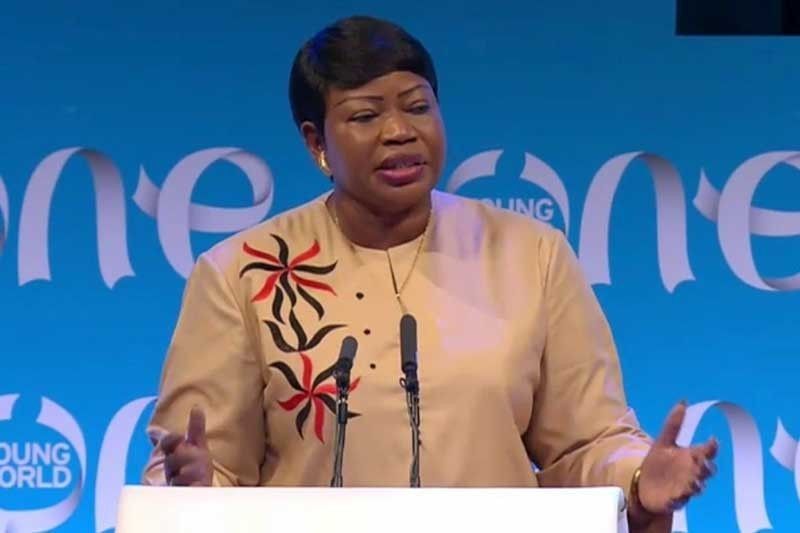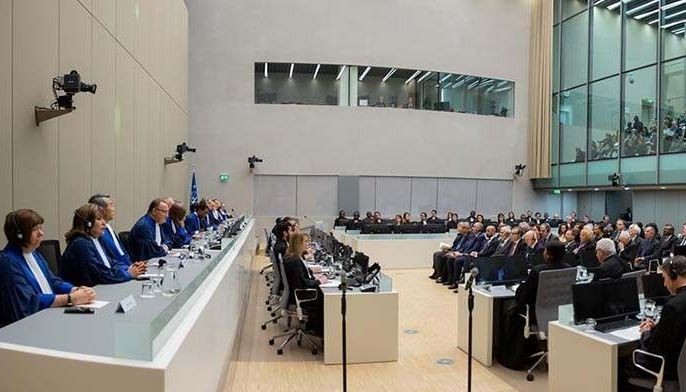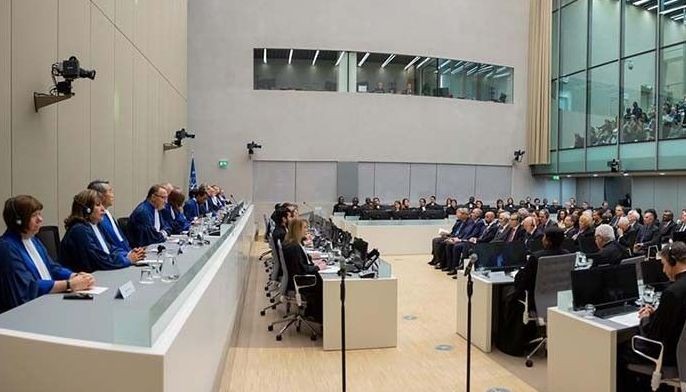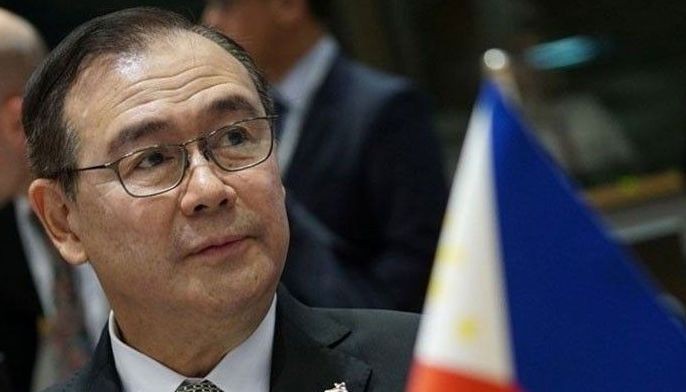ICC prosecutor: Initial inquiry continues despite Philippine withdrawal

MANILA, Philippines — The country’s withdrawal from the International Criminal Court does not mean the preliminary examination into President Rodrigo Duterte’s anti-drug crackdown has ended, the prosecutor of the Hague-based tribunal said.
“My office’s independent and impartial preliminary examination into the situation in the Philippines continues,” ICC prosecutor Fatou Bensouda said Monday night (Manila time).
The Philippines’ withdrawal of its ratification of the Rome Statute—the treaty that established the ICC—was formalized Sunday.
#ICC Prosecutor #FatouBensouda: “Our independent & impartial preliminary examination into the situation in The Philippines continues” pic.twitter.com/6asrVqPAYM
— Int'l Criminal Court (@IntlCrimCourt) March 18, 2019
Bensouda stressed the court continues to have jurisdiction over the possible crime against humanity committed during the period the Philippines was a state party to the statute.
“Pursuant to Article 127.2 of the Statute and based on prior ICC judicial ruling in the situation in Burundi, the Court retains its jurisdiction over crimes committed during the time in which the State was party to the Statute and may exercise this jurisdiction even after the withdrawal becomes effective,” she said.
The Philippines was a party to the court’s Rome Statute from November 1, 2011 to March 16, 2019.
Article 127 of the Rome Statute said: “Its withdrawal shall not affect any cooperation with the Court in connection with criminal investigations and proceedings in relation to which the withdrawing State had a duty to cooperate and which were commenced prior to the date on which the withdrawal became effective, nor shall it prejudice in any way the continued consideration of any matter which was already under consideration by the Court prior to the date on which the withdrawal became effective.”
Bensouda launched a preliminary examination into the alleged crime against humanity committed during the conduct of President Rodrigo Duterte's war on drugs. An examination, which is different from investigation, aims to determine if the court has jurisdiction over the Philippines’ case.
The Palace has said ICC personnel who come to the country will not be allowed entry if they are in the Philippines to investigate.
"If they say 'We will be investigating.' Perhaps they will be denied (entry) by the (Bureau of) Immigration," presidential spokesman Salvador Panelo said in a press briefing.
RELATED: Palace says ICC investigators won't be allowed to enter Philippines
Publication
Malacañang has argued that the Philippines has never been a party to the Rome Statute, saying it should have been published in the Official Gazette or a newspaper of general circulation like a regular law.
But publication in the Official Gazette is not among the steps in the treaty making process cited by the 2005 Supreme Court decision in Pimentel vs Office of the Executive Secretary. The decision was on a petition to compel the Department of Foreign Affairs and the Office of the Executive Secretary to send the signed copy of the Rome Statute to the Senate so it concur with ratification.
Justice Reynato Puno, who penned the decision, cited the steps in the treaty-making process enumerated by former Justice Isagani Cruz in his book on International Law as: Negotiation, signature, ratification and exchange of instruments of ratification.
Publication is also not among the requirements listed in "Philippine Treaty Law and Practice” and Executive Order No. 459, Providing For The Guidelines In The Negotiation of International Agreements and Its Ratification.
READ: Publication not among usual requirements for treaties, agreements
Assembly of State Parties hopeful for Philippine return
In a statement on the ICC website, O-gon Kwon, preident of the Assembly of State Parties said that he regrets the Philippines' decision to withdraw its ratification of the Rome Statute.
"The Assembly of States Parties, comprising more than 120 States from all regions of the world, is fully committed to the Court's mandate: to help put an end to impunity for the most serious crimes of concern to the international community," he said.
"I sincerely hope that the departure of the Philippines from the Rome Statute is only temporary and that it will re-join the Rome Statute family in the future," he also said.
"Encouraging universal adherence to the Rome Statute is key in strengthening our collective efforts to promote accountability for atrocity crimes and the rule of law", he said, adding "the ICC relies on the continued support of the international community to ensure its effectiveness in the fight against impunity."
‘Act of desperation’
Param-Preet Singh, associate director of the Human Rights Watch International Justice Program, said the Philippines’ pullout from the court that is meant to prosecute world’s worst atrocities is an “act of desperation.”
“Duterte may think that his country’s withdrawal from the ICC is a show of strength. But on the contrary: his bald-faced effort to protect himself from the court’s reach looks more like an act of desperation for a man who appears deeply implicated in alleged crimes against humanity,” Singh said.
She noted that since the ICC will not be able to launch probe in the Philippines for future crimes, the United Nations Human Rights Council should dispatch an investigation into the alleged drug war killings. After the country’s withdrawal, any future crimes committed in the Philippines will be outside of the court’s jurisdiction.
“As a member of the council, the Philippines is obligated to uphold the ‘highest standards’ of human rights, to ‘fully cooperate’ with the council and accept increased scrutiny of its rights record to ensure it adheres to its membership responsibilities,” Singh said.
She added: “A UN-led investigation could shine the spotlight on Duterte’s efforts to block accountability, and raise the pressure on him and his government to change course.”
- Latest
- Trending

































